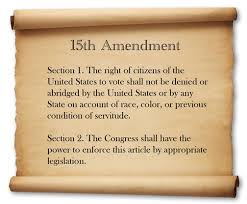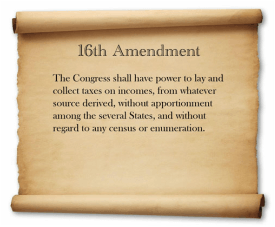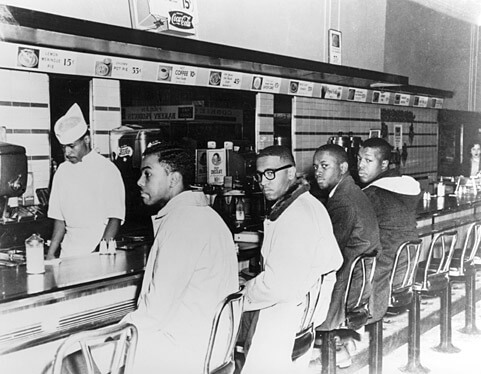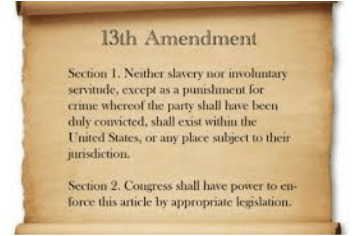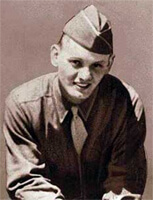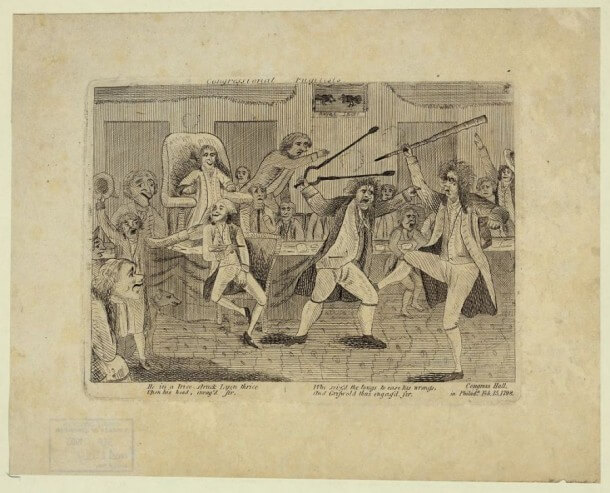1870, Fifteenth Amendment
TheFifteenth Amendment(Amendment XV) to the United States Constitutionprohibits the federal and state governments from denying a citizen the right to votebased on that citizen's "race, color, or previous condition of servitude." It was ratified on February 3, 1870, as the third and last of the Reconstruction Amendments.
1913, Sixteenth Amendment
TheSixteenth Amendment(Amendment XVI) to the United States Constitutionallows Congress to levy an income taxwithout apportioning it among the statesor basing it on the Census. It was adopted today in legal history.
1998, Karla Faye Tucker executed
Karla Faye Tucker(November 18, 1959 – February 3, 1998) was the first woman to be executedin the United States since 1984, and the first in Texas since 1863. She was convicted of murder in Texas in 1984 and put to death fourteen years later. Because of her gender and widely publicized conversion to Christianity, she inspired an unusually large national and international movement advocating the commutationof her sentence to life imprisonment, a movement that included a few foreign government officials.
She was executed by lethal injection on February 3, 1998. Reportedly, as the lethal chemicals were being administered "she praised Jesus Christ, licked her lips, looked at the ceiling, and hummed". Eight minutes after receiving the injection, she was pronounced dead at 6:45 p.m. C.S.T.
2016, Sorry for no Legal History Yesterday
Blogging was temporarily suspended yesterday while this sweet little thing had emergency surgery. All is well; she is resting comfortably and order is now restored to our blog universe.
1960, Woolworth Sit-ins
Four African American college students sat down at a lunch counter at Woolworth’s in Greensboro, North Carolina, and politely asked for service. Their request was refused. When asked to leave, they remained in their seats. Their passive resistance and peaceful sit-down demand helped ignite a youth-led movement to challenge racial inequality throughout the South. Hundreds of students, civil rights organizations, churches, and members of the community joined in a six-month-long protest. Their commitment ultimately led to the desegregation of the F. W. Woolworth lunch counter on July 25, 1960.
2004, Wardrobe MalfunctionDuring the halftime show of Superbowl XXXVIII, Janet Jackson suffered her now infamous "wardrobe malfunction." Along with the rest of the halftime show, it led to an immediate crackdown and widespread debate on perceived indecency in broadcasting.The Federal Communications Commission(FCC) fined CBS a record $550,000. That fine was appealed and ultimately voided. The "malfunction"was broadcast to millions of viewers. A co-founder of YouTube has stated that this was the particular incident that led to the idea and subsequent creation of YouTube. The incident also coined the phrase "wardrobe malfunction," which was later added to theMerriam-Webster'sCollegiate Dictionary.
1798- CONGRESSIONAL BRAWLS BEGIN
While Congress was meeting in Philadelphia, Representative Matthew Lyon of Vermont spit tobacco juice into the eye of Representative Roger Griswold of Connecticut on the House floor. Griswold later retaliated by hitting Lyon with a cane. Lyon then began attacking Griswold with a pair of fireplace tongs. The House attempted to censure both members but the resolutions failed. The underlying conflict was a disagreement over President John Adams' military strategy. This is regarded as the first of many Congressional brawls. It quickly became satirized in the press and brought national attention to the Partisan divide in Congress.
Photo from Library of Congress: Prints and Photographs Division
1815- JEFFERSON'S LIBRARY
After capturing Washington D.C. in 1814, the British burned the Capitol, destroying the Library of Congress and its 3,000 volume collection. Thomas Jefferson offered to sell his personal library in order to rebuild the Congressional collection. On this day in history,
President James Madison approved an act of Congress appropriating $23,950 to purchase Thomas Jefferson's library of 6,487 volumes. An avid reader and book collector, Jefferson's library not only included over twice the number of volumes as had been destroyed, it expanded the scope of the library beyond its previous topics—law, economics, and history—to include a wide variety of subjects in several languages. Anticipating the objection that his collection might be too comprehensive, he argued, "I do not know that it contains any branch of science which Congress would wish to exclude from their collection; there is, in fact, no subject to which a Member of Congress may not have occasion to refer."
Today, Jefferson's personal collection is stored in the
Rare Book and Special Collections Reading Room of the Library of Congress.






